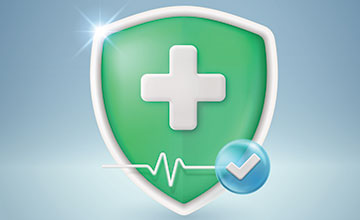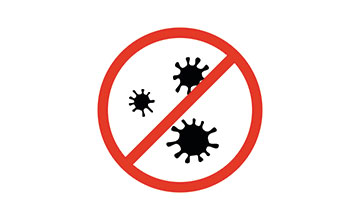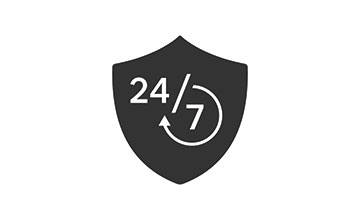Bactericidal Agents
In the ongoing battle against harmful microorganisms, bactericidal agents play a crucial role in ensuring our safety and well-being. From hospitals to homes, these agents are essential in maintaining hygiene and preventing the spread of bacteria, viruses, and other harmful microbes.
What Are Bactericidal Agents?
Bactericidal agents are substances that kill bacteria outright, rather than merely inhibiting their growth. These agents are used in a variety of applications, from disinfecting surfaces to treating infections. By targeting the bacterial cell walls or interfering with vital cellular processes, bactericidal agents ensure that bacteria are eradicated completely. This is particularly important in environments where the spread of bacteria could lead to serious health risks, such as in healthcare facilities or food production industries
Bactericidal products work in diverse ways depending on their chemical composition. Some target the bacterial cell membrane, causing it to rupture and leading to bacterial death. Others interfere with the bacteria’s protein synthesis, effectively shutting down their ability to survive.

Biocidal vs. Bactericidal: What’s the Difference?
While bactericidal agents are specifically designed to kill bacteria, biocidal agents have a broader spectrum of action. Biocides are chemical substances or microorganisms intended to destroy, deter, or exert control over harmful organisms, including bacteria, fungi, viruses, and other pathogens. They are widely used in disinfectants, preservatives, and pesticides. In essence, all bactericidal agents are biocidal, but not all biocidal agents are bactericidal, as biocides encompass a larger range of targets beyond bacteria.
Difference Between Bacteriostatic and Bactericidal Agents
When discussing bactericidal agents, it's important to understand the distinction between bactericidal and bacteriostatic agents. Bacteriostatic agents, as the name suggests, inhibit the growth and reproduction of bacteria without necessarily killing them. They prevent bacteria from multiplying, allowing the immune system to mount a response and eliminate the bacteria over time.
In contrast, bactericidal agents actively kill bacteria. This makes them the preferred choice in situations where immediate bacterial eradication is necessary, such as in treating severe infections or sterilizing medical equipment. The difference between bacteriostatic and bactericidal agents lies in their mechanism of action and the speed at which they achieve results. While bacteriostatic agents may take longer to clear an infection, bactericidal agents act more rapidly by directly killing the bacteria.

Microbicidal and Virus Protection
In addition to bactericidal agents, there are microbicidal agents, which target a broader range of microorganisms, including bacteria, viruses, fungi, and parasites. Microbicidal products are often used in settings where comprehensive virus protection is required. They are found in disinfectants, sanitizers, and other cleaning products that help eliminate harmful pathogens from surfaces and environments.
The emergence of anti-virus protection products has been crucial in recent years, especially with the rise of global health concerns such as viral pandemics. These products are designed to kill or deactivate viruses, preventing their transmission and ensuring safety in public spaces. Solutions such as Healthguard and Virokill are examples of advanced virus protection technologies, offering multi-faceted protection against bacteria and viruses.
The Role of Healthguard and Virokill
Healthguard is a brand that produces protective solutions with antimicrobial properties. Its products are widely used in industries such as healthcare, textiles, and public sanitation to create environments that are hostile to bacteria, viruses, and fungi. Healthguard-treated surfaces and fabrics are designed to inhibit the growth of pathogens, ensuring that they remain clean and hygienic over time.
Similarly, Virokill technology provides active virus protection, particularly against respiratory viruses. This technology has gained prominence in recent years as individuals and industries seek effective ways to combat viral transmission. Virokill works by killing or deactivating viruses on contact, reducing the likelihood of viral spread through surfaces or textiles.
These technologies not only offer bacteria protection but also a line of defense against viral threats. Their usage is particularly beneficial in high-risk areas such as hospitals, public transport, and crowded public spaces.
The Power of Microban for Long-lasting Protection
Microban is another innovative antimicrobial technology that has become synonymous with long-lasting bacterial and virus protection. Microban’s antimicrobial additives are infused into products and surfaces during the manufacturing process, providing ongoing protection by continuously inhibiting the growth of microbes. Unlike many disinfectants that only work when freshly applied, Microban is active 24/7, offering continuous protection against harmful bacteria and viruses.
This technology is used in a wide range of products, from household appliances and kitchenware to healthcare and industrial equipment. Its effectiveness in preventing the growth of harmful microorganisms makes it a key tool in maintaining public health standards.


Bacteria Protection: Staying Ahead of Microbial Threats
Maintaining bacteria protection is crucial in many aspects of daily life, particularly in sectors where hygiene and safety are of paramount importance. From healthcare and food production to personal care and household products, the need to prevent bacterial contamination cannot be overstated. The application of bactericidal and biocidal agents, combined with the latest in antimicrobial technology, helps safeguard public health.
The development of products such as Anti Germ, GermShield, and GermGuard has led to an increase in the availability of solutions that offer enhanced protection against bacterial and viral threats. These products are designed to neutralize pathogens on surfaces, ensuring that environments remain germ-free for extended periods. Whether used in cleaning products, personal care items, or public spaces, these solutions are integral in maintaining bacteria-free environments.
Bactericidal agents, coupled with biocidal technologies, are at the forefront of health protection, providing crucial barriers against bacteria, viruses, and other harmful microorganisms. With advancements in antimicrobial protection technologies like Healthguard, Microban, and Virokill, the fight against bacteria and viruses has become more effective and long-lasting.

